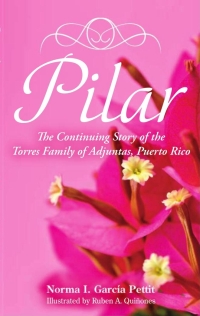Blog
What Life Was Like

It shouldn’t come as a surprise to learn that Puerto Ricans living in the late 1800s were for the most part poor and faced hard times, at least by today’s standards. Houses in the mountainous regions of the island were simple wooden structures usually built on piers and with corrugated metal roofs and no indoor plumbing. As described in chapter one of Luisa, the interior walls did not go all the way up to the rafters and curtains hung in the doorways of bedrooms instead of doors. Some homes had their kitchens outdoors in a lean-to, and stoves were wood burning or coal burning. If the kitchen was inside the house, the sink was generally suspended from the kitchen window. Water for consumption, cooking, doing dishes, and bathing had to be hauled in containers from creeks and springs.
Amazing Adjuntas

Before beginning to write Luisa, Randy and I took a trip to Juan Gonzalez, Adjuntas, the barrio in which Luisa Torres and her family lived. The goal was to get as close to where my great-grandmother had lived as a young girl so as to get a feel for the environment in which she grew up.
The Airbnb lodging that we chose, Casa Jardín, was hosted by Gerri, who graciously permitted the use of the pictures below. It is nestled in a mountainside surrounded by lush vegetation and majestic views. The property has hiking trails, hammocks, outdoor seating, and other features that make it the perfect place for a relaxing stay. The morning mist over the mountains is magical, and the coolness of the evenings and early mornings was exactly as I would later describe it within the pages of Luisa.
Puerto Rican Idioms
One of my goals in writing Luisa was to enlighten readers about the uniqueness of Puerto Rican culture. One aspect of a culture is the language that is spoken. Idioms are an important element of any language and can reflect ways of thinking and behaving within a certain culture. When I was teaching English learners, I always included idioms in the curriculum because just knowing the literal meaning of words was not going to help the students achieve English language fluency. The children needed to know that “elbow grease” was not something that had to be washed off with soap and water, and “break a leg” was not wishing bodily harm to an actor.
You will find Puerto Rican idioms sprinkled throughout Luisa. One of the first ones that you will encounter is, “De una boda sale otra.” This means, “Out of one wedding comes another.” Certainly, many people today can say that they met their mate at a wedding, but back in the late nineteenth century this was even more commonplace, especially in the rural mountainous regions of Puerto Rico. Consider that with their lack of mobility and modern means of communication, their social interaction was limited to church and local gatherings for baptisms, weddings and funerals.
